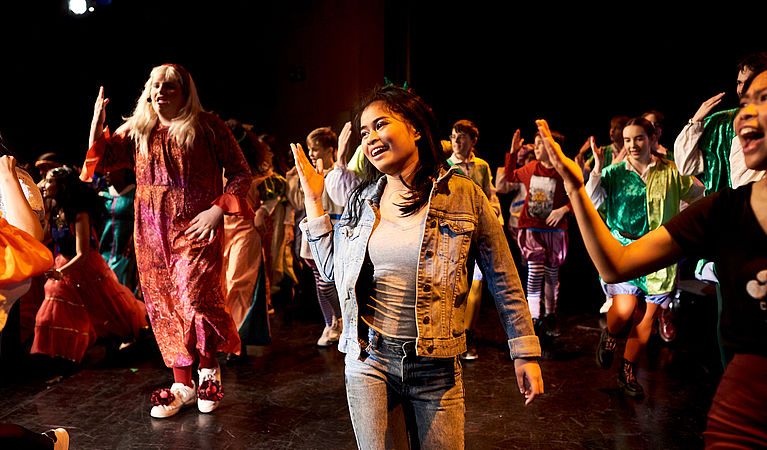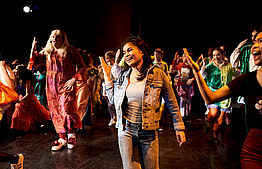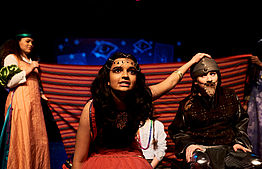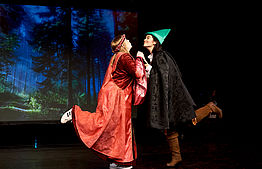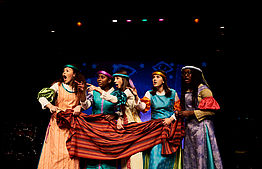At the end of each year, VIS produces a large theatrical show - alternating a musical or a drama performance. The performance includes students from Grades 6-12. Rehearsals run after school and students are encouraged to engage in all aspects of the production: from acting to stage design, from sound and light to publicity, from making costumes to make up, etc.
The performance for this school year was the popular comedy Robin Hood. The play was a funny adaptation of the renowned play with smart inserts from the current times and details specific to the school environment. Apart from the exquisite costumes, the beautiful original music and scenery, the audience appreciated the professionalism of the student actors and the many moments of interactivity between the actors and the audience.
The closing song “Don’t stop me now” was a great summary of the performances we have seen so far at VIS. The audience could not stop laughing at the funny twists of the story. Seeing all visitors getting up from their seats and singing and dancing along was a great reaction which came to celebrate the hours of efforts of the students, teachers and parents involved in the play.
This year’s production also had a record number of students working backstage - from designing t-shirts, posters, entrance tickets, to making the films used in the show, running sound and light, designing and making props to make-up and hair work. It is always fascinating to see what our students can achieve, once they have been trained, instructed and supervised. The parents of the performers need to be praised as well for the incredible help given in designing and making the beautiful costumes, creating elaborate props, providing food and drinks for our hungry students during the weekend rehearsals and many other jobs needed.
VIS recognizes Drama as an important subject that benefits the learning and development of students. There are three main strands to the effective use of drama: a means to build children’s confidence and develop their social skills; a teaching approach for exploring cross-curricular subjects and issues, and an aid in developing children’s performance and self-presentation skills. These strands often overlap or interact.
“I regard the theatre as the greatest of all art forms, the most immediate way in which a human being can share with another the sense of what it is to be a human being.” Oscar Wilde
